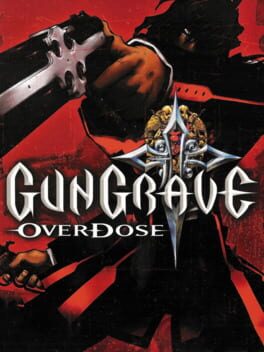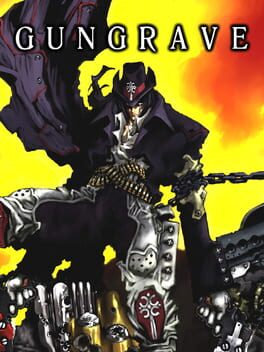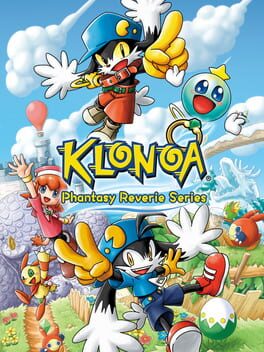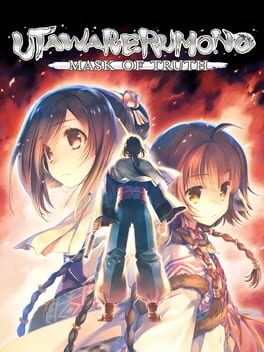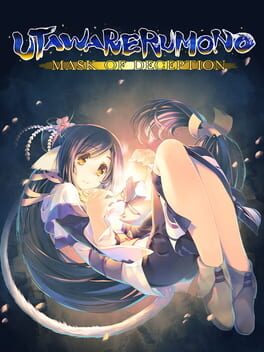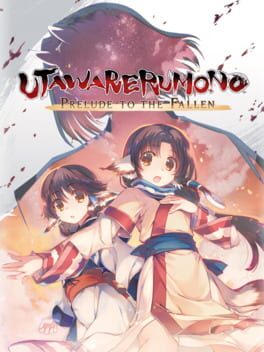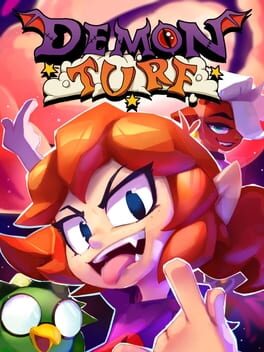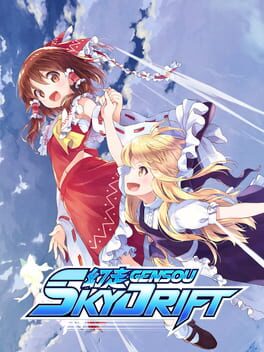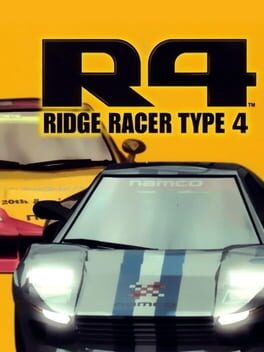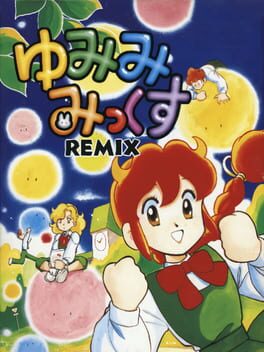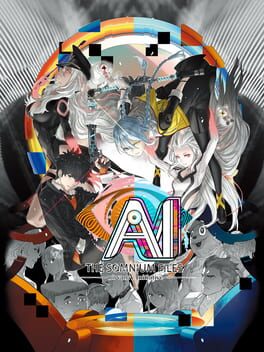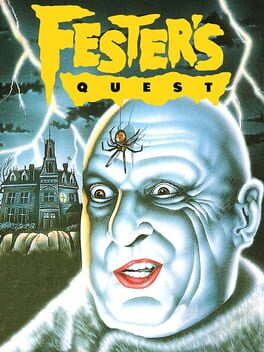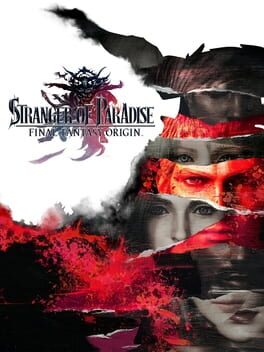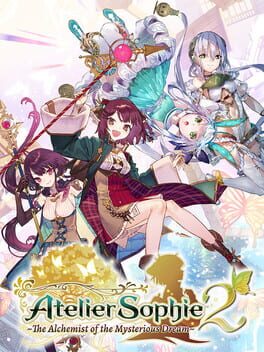Dokkanojo
2004
While the first game was carried on the back of its vibes, Overdose is legitimately solid and fun. The first is the quintessential rental game, but this is the kind of game you find in the bargain bin and fist pump to yourself over, knowing that you'll have a ton of fun with it at that price. Beyond the Grave is not a massive, lurching chunk fo meat here, but everything else is expanded on and feels so much better that it's an acceptable tradeoff.
2002
This review contains spoilers
There is so little that can be said of this game that isn't the biggest spoiler ever, so I'll mark this a spoiler but still keep it simple and say that my review for Mask of Deception applies doubly here, with the addendum that Truth, specifically, is a masterclass in grief and grieving, life and death, and balancing living for others and for yourself.
I can truly think of no game that lets you live with its characters quite as much as Mask of Deception. It sincerely immerses you in the world by giving a cast to eat and drink with, to celebrate and cry with, and to live and learn with in a way that is so immensely personal and touching that they feel like your companions just as much as they are Haku's.
I am never one to think a slow burn is a bad thing, so the sleepy startup leading to the eventual, constant conflict and twists later on is supremely what I am here for. There are bits that are very much of its era and genre, but the remake is never immensely gross and I still think it holds up immensely well, with the characters especially being an absolute standout. The world, admittedly, isn't very well fleshed out or explained, with the sense of scale being particularly nebulous, but it's a solid consolation that the sequels benefit from years of consideration over the setting, resulting in a much more satisfying picture of things once you get there.
2021
I like almost all the parts of this game individually. The controls are practically immaculate, the character designs are charming, the level designs are neat, and the music is cool
But even with all the good parts put together, the bits that bug me stick in my craw enough that I can't really say I like the game. There's enough of a bounce out of the glide that it feels bad to use, the combat is absolutely dreadful, and all the good visual design gets negated by being smeared with disgusting fog that, honestly, hurt my eyes most of the time.
There's a really nice foundation here, but I can't really say that the main game does it for me. I hear the little expansion is better, and I may honestly get to it someday since I want a better version of it, but this one just fell flat for me.
But even with all the good parts put together, the bits that bug me stick in my craw enough that I can't really say I like the game. There's enough of a bounce out of the glide that it feels bad to use, the combat is absolutely dreadful, and all the good visual design gets negated by being smeared with disgusting fog that, honestly, hurt my eyes most of the time.
There's a really nice foundation here, but I can't really say that the main game does it for me. I hear the little expansion is better, and I may honestly get to it someday since I want a better version of it, but this one just fell flat for me.
2015
1998
This made me understand Kazuo Hirai better. I get he was just pulling from the first game, but this is truly peak Ridge Racer performance. Nothing in this game is a half measure, the story swings big and makes you invested in caricatures of characters that end up being lovable, and it just oozes style, charm, and sheer cool the whole time.
1995
This review contains spoilers
This is an Uchikoshi Kotaro game, which means that if you've played any Unchikoshi Kotaro game, you have, effectively, played this one.
But, if you've played an Uchikoshi Kotaro game, you know exactly what that means about the content and quality, and you know that no matter how hard you try to remind yourself that you're playing an Uchikoshi Kotaro game, you'll get so bogged down in hearing about chakra and Moksha, the Philadelphia Experiment and the Mandela Effect, that you'll let yourself slip into contentedness, telling yourself, "Yes, this is an Uchikoshi Kotaro game!"
Later, after your guard completely dropped, that lie will be made to come crashing down upon you, and you'll realize that, no, there's that other, bigger reason why this is an Uchikoshi Kotaro game, and you'll be left staring dumbfounded at the text boxes on your screen like Charlie Brown looking at the football in Lucy's hands as you realize that you've been had again, you blockhead.
This is an Uchikoshi Kotaro game.
But, if you've played an Uchikoshi Kotaro game, you know exactly what that means about the content and quality, and you know that no matter how hard you try to remind yourself that you're playing an Uchikoshi Kotaro game, you'll get so bogged down in hearing about chakra and Moksha, the Philadelphia Experiment and the Mandela Effect, that you'll let yourself slip into contentedness, telling yourself, "Yes, this is an Uchikoshi Kotaro game!"
Later, after your guard completely dropped, that lie will be made to come crashing down upon you, and you'll realize that, no, there's that other, bigger reason why this is an Uchikoshi Kotaro game, and you'll be left staring dumbfounded at the text boxes on your screen like Charlie Brown looking at the football in Lucy's hands as you realize that you've been had again, you blockhead.
This is an Uchikoshi Kotaro game.
1989
I think the fact that this game exists is more interesting than anything in it, to be honest. Even with the gameplay changes from the PAL release, it's not a terribly compelling game, still seems a bit too antagonist towards the player, and a little ill-considered with its mechanics. It's just not very fun, as novel and ambitious as aspects of its setup are.
This game lived up to every hope and expectation I had of it when I first heard the rumor that Team Ninja was making an action game based on the original Final Fantasy.
The action is top-notch, the RPG elements incorporated make it feel truly in line with the franchise, and the story is cheeky, self-aware, and more ambitious than it may initially seem. It perfectly marries the old storytelling of "Ah, you have a crystal? So do I! Let us quest!" with the more modern Final Fantasy narratives, full of twists, turns, and intrigue.
While it definitely offers more than enough meat to go absolutely ham on numberwang and grinding, the main story doesn't overstay its welcome, wrapping up about when you want it to, and even offering some fairly relaxed off-ramps in terms of engagement for the final couple missions, where you can take things kinda easy until the final boss if you want to.
It's a really splendid anniversary title that captures what makes so many of the Final Fantasy spinoffs so captivating, compelling, and unique, and each mission being based on a location from a previous game makes it such a wonderful celebration of the franchise.
The action is top-notch, the RPG elements incorporated make it feel truly in line with the franchise, and the story is cheeky, self-aware, and more ambitious than it may initially seem. It perfectly marries the old storytelling of "Ah, you have a crystal? So do I! Let us quest!" with the more modern Final Fantasy narratives, full of twists, turns, and intrigue.
While it definitely offers more than enough meat to go absolutely ham on numberwang and grinding, the main story doesn't overstay its welcome, wrapping up about when you want it to, and even offering some fairly relaxed off-ramps in terms of engagement for the final couple missions, where you can take things kinda easy until the final boss if you want to.
It's a really splendid anniversary title that captures what makes so many of the Final Fantasy spinoffs so captivating, compelling, and unique, and each mission being based on a location from a previous game makes it such a wonderful celebration of the franchise.
2022
For people familiar with Miyazaki’s Souls-adjacent games, dipping into Elden Ring is a lot like starting up a new tabletop campaign with that same DM you’ve been playing with since high school.
Your first session starts and you hear the same lofty setup you’ve been hearing for years. It’s all commonplace, maybe a bit too familiar, but it’s comforting and homey in a way you’d never trade for anything else, and you latch onto it all the same. Just like years ago you were wondering if every NPC you came across was the Furtive Pygmy, because you were certain to make sure they weren’t so easily forgotten to you, you suspect everyone of being the loathsome Dung Eater until told otherwise.
When things really start, though, you’re hit by the sense that this campaign is different. You can see that the DM has way more with them than usual, maybe even more than you’d see them use over the course of a whole campaign, but you thought nothing of it until you got past the introduction and out into a world where the DM just smiles at you and waits for you to choose where you want to go and what you want to do.
So, you decide to test it. You meander and wander around, knowing full well where the DM has the real meat of the adventure waiting for you, but wanting to see just what all the stuff they’d brought is for. You go into caves and catacombs, uncover small churches and settlements, and the DM always has an answer for what’s going on, for what’s happening. They never have to stop and pause to think things out, and you never feel like any of this is just good, old-fashioned DM improv. You can even, as you’ve always been able to, tell how far into their reread of Berserk they are by what equipment you get and what themes and area aesthetics you come across.
But you can also tell they’ve been reading up on their fantasy this time, because when you do head to the meat of the story the DM wants you to experience, you find a narrative that’s way more solid and fundamentally linked than the loose, tenuous pieces you normally get. There’s still plenty of room for your own interpretations, and plenty of ambiguity, such that not even your own group of fellow adventurers agree on what everything means, but it’s clearly more thought out and better for that thought.
Even the same system the DM has always liked to use is better, the combat feeling overall a lot more fun and your characters feeling a bit more capable and powerful in a way that allows the DM to throw more and more interesting foes your way, when you’d be overrun to the point of frustration in previous campaigns.
It’s fun. It’s exciting. It’s the newest and freshest things have ever felt to you, even more than that zeroth session of your first campaign with them all those years ago.
So, you and your group really dig in, offroading and enjoying the world and the lore, but as you go, you start to see some cracks, some slips in the DM’s demeanor. The big, glorious boss fights feel a little more tedious at points, a little less magical than usual, and so many of the side areas you spelink into feel more and more the same. Some of them have some unique little gimmicks to contend with, sure, but at the end you reach your sixth or so encounter with an enemy called a dog, that looks like a cat, but moves like a chess piece, and it’s really not at all any more interesting this time now that it has a scepter it’s swinging at you instead of a sword. And it some points you get to an area that feels like it’s not worth your trouble, and not even your best sense of adventure can push you through, because you know you’re just going to have to deal with an enemy you’ve fought before that wasn’t terribly compelling, and is even less so now that there are three of them, no matter how different the room they’re in is.
But your group grins and bears, realizing that you’ve pushed things maybe too far, and, feeling that your adventure is ready to wind down, you push through to where the DM clearly wants you to go, enjoying the more polished, mainline bits of the campaign as you do. Even then, things drag maybe a little too much, and you think that maybe an area or two could have been cut for brevity’s sake until you’re finally staring down the final obstacle between you,the end of the campaign, and the finale to the story that you’ve always known has been coming, because, well, you’ve been playing with this DM for a decade now, and anyone wouldn’t reasonably expect anything else. It’s simply what they like to do, and you like it too, otherwise you wouldn’t be here again, on your fifth or so campaign.
And when you’re done, at long last, there’s a sense of fatigue you can feel being lifted from both ends of the table. You, glad to have finished such a wonderful adventure before it became too long-in-the-tooth to be contemptuous, and DM for finally being able to rest from all the diversions and sideroads they had to accommodate for. It was a good time, and it’s one you’ll often speak of to your group and your friends. It’s probably the best campaign the DM has ever put together for you all, but, as someone in your group asks if it’s your favorite of their campaigns, you might find yourself pausing to consider a bit.
That’s where I stand with Elden Ring. It’s a fantastic game, easily the best RPG Miyazaki has put his name to, but one I’d hesitate to call my favorite. Admittedly, part of that comes down to personal reasons, as I have acrophobia that can be triggered by video games, and Elden Ring has by far more triggering areas to me than his whole back catalog combined. The other part of that, though, is a growing feeling that as good as the game is, it’s not one I’m eager to revisit anytime soon.
It truly is a fantastic game, and one I’m glad to have played, but I feel like, in the 100 hours spent with it, I’ve gotten more than my fill, and it may take years before any sort of hunger for it settles in again.
Your first session starts and you hear the same lofty setup you’ve been hearing for years. It’s all commonplace, maybe a bit too familiar, but it’s comforting and homey in a way you’d never trade for anything else, and you latch onto it all the same. Just like years ago you were wondering if every NPC you came across was the Furtive Pygmy, because you were certain to make sure they weren’t so easily forgotten to you, you suspect everyone of being the loathsome Dung Eater until told otherwise.
When things really start, though, you’re hit by the sense that this campaign is different. You can see that the DM has way more with them than usual, maybe even more than you’d see them use over the course of a whole campaign, but you thought nothing of it until you got past the introduction and out into a world where the DM just smiles at you and waits for you to choose where you want to go and what you want to do.
So, you decide to test it. You meander and wander around, knowing full well where the DM has the real meat of the adventure waiting for you, but wanting to see just what all the stuff they’d brought is for. You go into caves and catacombs, uncover small churches and settlements, and the DM always has an answer for what’s going on, for what’s happening. They never have to stop and pause to think things out, and you never feel like any of this is just good, old-fashioned DM improv. You can even, as you’ve always been able to, tell how far into their reread of Berserk they are by what equipment you get and what themes and area aesthetics you come across.
But you can also tell they’ve been reading up on their fantasy this time, because when you do head to the meat of the story the DM wants you to experience, you find a narrative that’s way more solid and fundamentally linked than the loose, tenuous pieces you normally get. There’s still plenty of room for your own interpretations, and plenty of ambiguity, such that not even your own group of fellow adventurers agree on what everything means, but it’s clearly more thought out and better for that thought.
Even the same system the DM has always liked to use is better, the combat feeling overall a lot more fun and your characters feeling a bit more capable and powerful in a way that allows the DM to throw more and more interesting foes your way, when you’d be overrun to the point of frustration in previous campaigns.
It’s fun. It’s exciting. It’s the newest and freshest things have ever felt to you, even more than that zeroth session of your first campaign with them all those years ago.
So, you and your group really dig in, offroading and enjoying the world and the lore, but as you go, you start to see some cracks, some slips in the DM’s demeanor. The big, glorious boss fights feel a little more tedious at points, a little less magical than usual, and so many of the side areas you spelink into feel more and more the same. Some of them have some unique little gimmicks to contend with, sure, but at the end you reach your sixth or so encounter with an enemy called a dog, that looks like a cat, but moves like a chess piece, and it’s really not at all any more interesting this time now that it has a scepter it’s swinging at you instead of a sword. And it some points you get to an area that feels like it’s not worth your trouble, and not even your best sense of adventure can push you through, because you know you’re just going to have to deal with an enemy you’ve fought before that wasn’t terribly compelling, and is even less so now that there are three of them, no matter how different the room they’re in is.
But your group grins and bears, realizing that you’ve pushed things maybe too far, and, feeling that your adventure is ready to wind down, you push through to where the DM clearly wants you to go, enjoying the more polished, mainline bits of the campaign as you do. Even then, things drag maybe a little too much, and you think that maybe an area or two could have been cut for brevity’s sake until you’re finally staring down the final obstacle between you,the end of the campaign, and the finale to the story that you’ve always known has been coming, because, well, you’ve been playing with this DM for a decade now, and anyone wouldn’t reasonably expect anything else. It’s simply what they like to do, and you like it too, otherwise you wouldn’t be here again, on your fifth or so campaign.
And when you’re done, at long last, there’s a sense of fatigue you can feel being lifted from both ends of the table. You, glad to have finished such a wonderful adventure before it became too long-in-the-tooth to be contemptuous, and DM for finally being able to rest from all the diversions and sideroads they had to accommodate for. It was a good time, and it’s one you’ll often speak of to your group and your friends. It’s probably the best campaign the DM has ever put together for you all, but, as someone in your group asks if it’s your favorite of their campaigns, you might find yourself pausing to consider a bit.
That’s where I stand with Elden Ring. It’s a fantastic game, easily the best RPG Miyazaki has put his name to, but one I’d hesitate to call my favorite. Admittedly, part of that comes down to personal reasons, as I have acrophobia that can be triggered by video games, and Elden Ring has by far more triggering areas to me than his whole back catalog combined. The other part of that, though, is a growing feeling that as good as the game is, it’s not one I’m eager to revisit anytime soon.
It truly is a fantastic game, and one I’m glad to have played, but I feel like, in the 100 hours spent with it, I’ve gotten more than my fill, and it may take years before any sort of hunger for it settles in again.
An immensely lovely game draws on everything experimented with and learned since the original Atelier Sophie, applying that knowledge the first game's mechanics in a way that truly makes them shine. The characters are all lovely, with even those who initially seemed uninteresting growing on me to the point where the ending was just 30 minutes of crying as everyone said goodbye. A real joy to play, and a wonderful anniversary title that really showcases what's great about the series.
